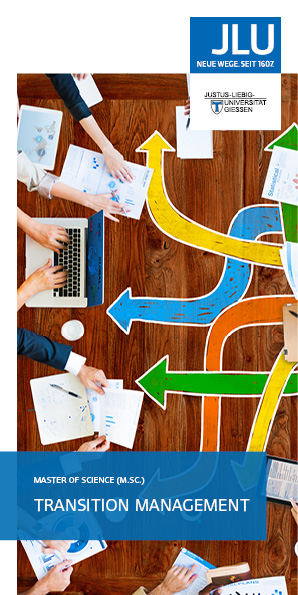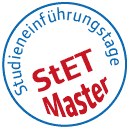Transition Management (M.Sc.)
Master of Science (M.Sc.)
Overview
- TM - Bildseite
-

-
Foto: rawpixel/123rf.com
- Englischer Studiengang
-
 This course of study is taught in English.
This course of study is taught in English.
- Overview-rest
-
Transition Management addresses the enormous economic and political transformations we observe in many transition and emerging economies worldwide. Their societies are moving from state management to a market economy, from autocracy to democracy, often at a rapid pace and at higher income and technology levels than in a typical developing country. The group of transition countries includes the successor states of the former Soviet Union, the countries of Eastern and South Eastern Europe, as well as transition economies in Asia, such as China and Vietnam. The programme also provides relevant insight on emerging economies in Latin America and Africa.
The English-language Master’s Programme "Transition Management" is an interdisciplinary study programme established by five faculties of Justus Liebig University Giessen, led by the Faculty of Agricultural Sciences, Nutritional Sciences and Environmental Management (Faculty 09). The Center for International Development and Environmental Research (ZEU) at the University of Giessen contributes topical input and teaching modules specifically tailored to the needs of the programme.
Justus Liebig University Giessen has been the first university in Germany to address the specific problems of transition countries in an international, interdisciplinary programme that combines theory and practice.
The Master's Programme Transition Management enables Students to
- understand the complex processes and specific demands of transition and emerging economies,
- comprehend the different areas of transition, including economic, legal, political, social, agricultural and environmental aspects and their interrelationships,
- gain knowledge as well as practical skills in methods and strategies to enhance the transition process,
- train their soft skills by learning and working in international and interdisciplinary teams.
Target Group
The Master's programme is designed for students who are interested in learning about the complex problems of transition countries and in developing approaches to overcome these problems by linking economic, political and environmental aspects.
A background in related academic disciplines of economics, law, and/or the social sciences is required.
Graduates of Transition Management qualify for senior positions in private and public sector management, public administration, academia, and international technical and economic cooperation.Accreditation
Since July 2006
Composition of the Study Programme
- Composition of the Study Programme
-
Degree
Master of Science (M.Sc.)
Duration of studies
4 semesters – 120 credit points (cp)
Composition of the Degree Programme
The study programme is organized in modules (courses). Each module comprises four semester hours per week and is completed with a final examination as given in the module description. The final grade of the study programme is calculated from the achieved module grades.
The course consists of 8 mandatory modules (core modules), 6 optional modules (profile modules), an industrial internship (or 2 more profile modules) and the Master‘s thesis. Having completed the core modules, the students are well equipped with a solid scientific education and ready to deepen their knowledge in specific research areas. By individually choosing their profile modules from a diverse range of study areas, students shape their individual competence profile.
Structure of the Master's Degree Course
The Master’s degree course consists of 16 modules (120 credits):
Modules Core Competence
(mandatory modules)8 modules 48 credits Profile Competence
(optional modules)8 modules or
6 modules + industrial intership
48 credits Master’s thesis 24 credits Total 16 modules 120 credits Core Modules (Mandatory Courses)
- Theory and Practice of Economic Development (6 CP)
- Empirical Research Methods (6 CP)
- International Law (6 CP)
- Global Food Markets (6 CP)
- Power and Democracy (6 CP)
- Transition in Practice (6 CP)
- Business Administration and Sustainability Management (6 CP)
- Transition and Integration Economics (6 CP)
Profile Modules (6 CP each)
Students tailor their individual profile by selecting 6 modules and the internship or 8 modules from the entire profile module catalogue of the faculty. For example, you can choose profile modules from the following subject areas:
- Agricultural, Food and Environmental Policy
- Organic Farming with Focus on Sustainable Soil Use
- Landscape, Water and Biogeochemical Cycles
- Food Sociology
- Communication and Engagement in Agricultural, Nutritional and Environmental Sciences
- Agricultural and Food Market Analysis
- Landscape Ecology and Landscape Planning
- Insect Biotechnology
- Biometry and Population Genetics
- Crop Biomass and Bioresources
- Political Science
- Industrial Organization, Regulation and Antitrust
- International Economics
- Statistics and Exonometrics
Internship (optional) (12 CP)
The objective of the internship module is to give students examples of practice-oriented knowledge and skills from companies, institutions and other organisations in their future careers. In particular, you should acquire knowledge about activities and processes in institutions that have a transformation-specific relationship or are active with or in transition countries. Students learn to combine theoretical knowledge and scientific methodology with practice. Internships are possible in all professional disciplines represented by a module of the study programme.
Furthermore, through experiencing practical problems of an economic, technical, organizational and social nature, the internship promotes the understanding of research and teaching at the university and strengthens the relationship between study and practice.Master Thesis (24 CP)
Students dedicate the major part of the 4th semester to writing the Master's thesis. With the thesis, they prove their capability to investigate a given topic independently and scientifically within a given timeframe.
Application
- Start WS-engl: Commencement of studies
-
Commencement of Studies
Only possible in the winter semester.
- Bewerbergruppen-engl
-
Application Procedure
Depending on where you obtained either your university entrance certificate or your Bachelor degree, we differentiate two application procedures:
Case A
You need to use JLU’s application portal if
- you hold a completed Bachelor’s degree obtained at a German university (the country of origin of your university entrance certificate is of no importance).
- your German Bachelor programme is not yet complete. Please provide a preliminary report. The country of origin of your university entrance certificate is of no importance.
- you want to change to another degree programme at JLU. The country of origin of your university entrance certificate is of no importance.
Case B
You need to submit your application to uni-assist if
- you hold a completed Bachelor’s degree obtained at a foreign university (the country of origin of your university entrance certificate is of no importance).
- you obtained your university entrance certificate abroad and attended but not completed yet a Bachelor programme at any other university within EU. Please provide a preliminary report.
- Application: deadline, intake capacity, fees
-
Intake Capacity ("Numerus Clausus")
The intake capacity of this degree programme is not limited internally by the university.
Deadlines
Application for enrolment period winter semester 2025/26
Application for enrolment starts
- for applicants with a German Bachelor's: 1 June 2025
- for applicants with an international Bachelor's degree: 1 May 2025
Application deadline
- for applicants with a German Bachelor's: 15 June 2025
- for applicants with an international Bachelor's degree: 15 June 2025
Fees
No study fees are charged for this study program. However, students have to pay a semester contribution of approx. 400 EUR for administration and the Germany semester ticket (details).
- Application: Admission Requirements
-
Admission Requirement
In general, students can apply for this Master's programme if they hold a Bachelor's degree with a duration of at least three years (180 Credits) or a comparable degree. The Bachelor's degree must be completed in a closely related scientific field. For example:
- Agrarwissenschaften (Agricultural Science)
- Ernährungswissenschaften (Nutrition)
- Nachwachsende Rohstoffe und Bioressourcen (Crop Biomass and Bioresources)
- Ökotrophologie (Nutritional Sciences and Home Economics)
- Umwelt und globaler Wandel (Environment and Global Change)
- Umweltmanagement (Environmental Management)
- Wirtschaftswissenschaften (Economics)
- Rechtswissenschaften (Law)
- Sozial- und Politikwissenschaften (Political Science)
Applications with a Bachelor’s degree in another scientific field or with a Bachelor’s degree from abroad will be examined individually as to whether the study requirements are fulfilled. For the Master’s programme Transition Management sufficient knowledge in the fields of economics, law and/or social sciences must be demonstrated, at least 60 CP in one of these fields. A specialist commission at JLU will then finally decide on the admission. Any information on the status of acceptance without having completed the application process is not possible.
- Application: Language Requirements
-
Language Requirements
As the entire degree course is taught in English, applicants must provide proof of sufficient knowledge of written and spoken English. Accepted proofs of language proficiency:
- either: TOEFL-Test ITB (internet-based test) with at least 95 points or IELTS-Test with at least grade of 7 in the academic test;
- or: Proof of obtaining a local higher education entrance qualification in one of the following countries: Australia, Ireland, Canada, New Zealand, USA, United Kingdom, South Africa;
- or: Proof of a Bachelor’s degree in English in one of the following countries: Australia, Ireland, Canada, New Zealand, USA, United Kingdom, South Africa;
- or: Proof of the UNIcert III certificate.
- Further information-admission international
-
For further information please contact:
Registrar’s Office / Studierendensekretariat
Goethestrasse 58
Postal address: Postfach 11 14 40, 35359 Giessen
Tel.: 0641/99-16400
international.admission@admin.uni-giessen.de / stud-sekretariat@admin.uni-giessen.de
Career Options
Contact
Further Information
- Further Information: Dokumente
-
Prüfungs- und Studienordnungen
- Examination- and study regulations (in German)
(mit Modulbeschreibungen und Studienverlaufsplänen) - Examination Committee and Regulations (Informationen in English)
- General study regulations for modular and multi-stage study programmes
Courses offered in the course catalogue
- Examination- and study regulations (in German)
- Links Faculty 09
- Master's Degree Programmes of Faculty 09
-
taught in English
- Agrobioinformatics (taught in English)
- Agrobiotechnology (taught in English)
- Insect Biotechnology and Bioresources (taught in English)
- Sustainable Transition (taught in English - Digital degree programm)
- Transition Management (taught in English)
taught in German
- Agricultural and Resource Economics (taught in German)
- Bioinformatics and Systems Biology (taught in German)
- Food Economics (taught in German)
- Nutritional Sciences (taught in German)
- Beverage Technology (offered in cooperation with the Geisenheim University) (taught in German)
- Crop Science (taught in German)
- Livestock Sciences (taught in German)
- Nutritional Sciences and Home Economics / Ecotrophology (taught in German)
- Oenology (offered in cooperation with the Geisenheim University) (taught in German)
- Environmental Sciences (taught in German)
- Wine Economics (offered in cooperation with the Geisenheim University) (taught in German)
- Any more questions?
-

Any more questions?
Information and consulting services of the JLU can be found in the category "Contact" on this page!

